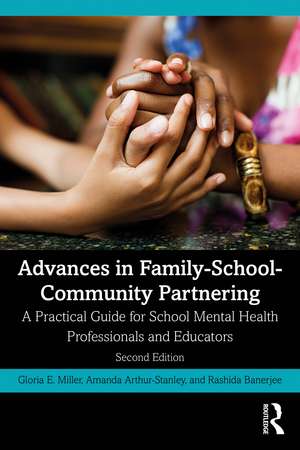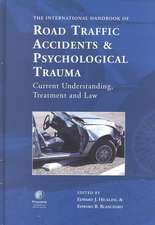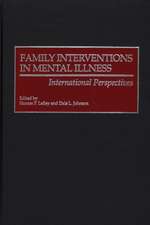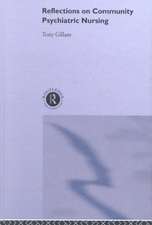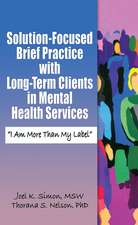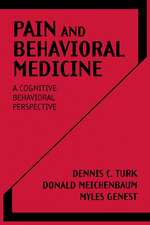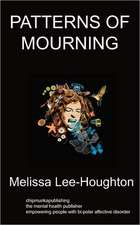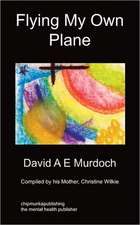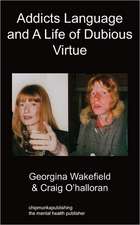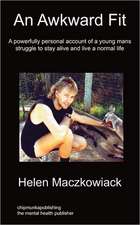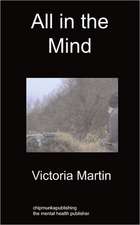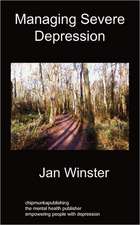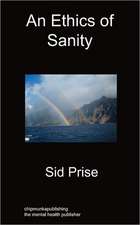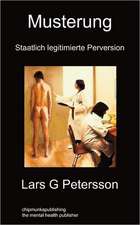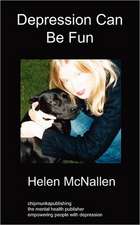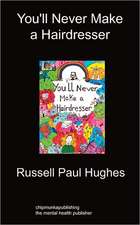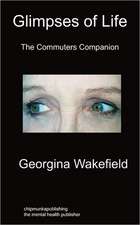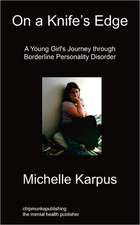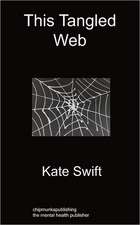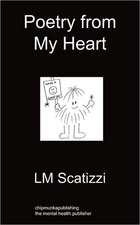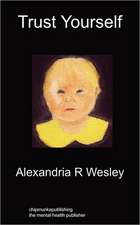Advances in Family-School-Community Partnering: A Practical Guide for School Mental Health Professionals and Educators
Autor Gloria E. Miller, Amanda Arthur-Stanley, Rashida Banerjeeen Limba Engleză Paperback – 30 noi 2021
Section I covers legislative, empirical, and theoretical underpinnings and updates. Practical strategies are discussed to develop, deliver, and evaluate a cohesive system of support to improve student outcomes. Chapter addendums detail the specific approaches and associated resources to advance FSCP from infancy through adulthood. In Section II, current researchers and practitioners consider how to enhance collaborative partnerships with military, migrant/refugee, and rural communities and support gender identity and varied developmental abilities. Four culminating case stories are designed to facilitate ideas for intentional integration of FSCP domains into readers’ ongoing practices.
School psychologists, counselors, educators, administrators, and social workers will learn how to strategically implement this partnering in all levels of schooling.
| Toate formatele și edițiile | Preț | Express |
|---|---|---|
| Paperback (1) | 332.27 lei 6-8 săpt. | |
| Taylor & Francis – 30 noi 2021 | 332.27 lei 6-8 săpt. | |
| Hardback (1) | 1095.75 lei 6-8 săpt. | |
| Taylor & Francis – 30 noi 2021 | 1095.75 lei 6-8 săpt. |
Preț: 332.27 lei
Preț vechi: 349.76 lei
-5% Nou
Puncte Express: 498
Preț estimativ în valută:
63.58€ • 66.52$ • 52.82£
63.58€ • 66.52$ • 52.82£
Carte tipărită la comandă
Livrare economică 02-16 aprilie
Preluare comenzi: 021 569.72.76
Specificații
ISBN-13: 9781138502093
ISBN-10: 113850209X
Pagini: 288
Ilustrații: 4
Dimensiuni: 152 x 229 x 15 mm
Greutate: 0.39 kg
Ediția:Nouă
Editura: Taylor & Francis
Colecția Routledge
Locul publicării:Oxford, United Kingdom
ISBN-10: 113850209X
Pagini: 288
Ilustrații: 4
Dimensiuni: 152 x 229 x 15 mm
Greutate: 0.39 kg
Ediția:Nouă
Editura: Taylor & Francis
Colecția Routledge
Locul publicării:Oxford, United Kingdom
Public țintă
Professional and Professional Practice & DevelopmentCuprins
Section I; 1. A Multitiered Framework for Family-School-Community Partnering; 2. Foundational Theories and Cultural, Sociological, Philosophical Considerations for Family-School-Community Partnering; 3. Universal Family-School-Community Partnering; 4. Targeted and Intensive Family-School-Community Partnering; 5. Family-School-Community Partnering: Where Are We Now? Where Are We Going?; Section II; 6. Understanding and Supporting Military Families Through Family-School-Community Partnerships; 7. Gender Identity Considerations for Family-School-Community Partnerships; 8. Family-School-Community Partnering with Immigrant and Refugee Families; 9. Supporting Students with Intellectual and Developmental Disabilities Through Family-School-Community Partnerships; 10. Considerations for Family-School Partnerships in Rural Communities; 11. Case Stories in Family-School-Community Partnering.
Notă biografică
Gloria E. Miller, PhD, is an endowed professor at the University of Denver whose work focuses on early language, literacy, and social-emotional learning and elevating all families’ voices as collaborators in their children’s education.
Amanda Arthur-Stanley, PhD, is a practicing school psychologist and adjunct professor. She completes developmental assessments for young children ages 0-6 and partners with families around young children’s social-emotional development.
Rashida Banerjee, PhD, is a professor at the University of Denver. Her work focuses on effective family, professional, and community partnerships, appropriate assessment, inclusive intervention, and interdisciplinary workforce development.
Amanda Arthur-Stanley, PhD, is a practicing school psychologist and adjunct professor. She completes developmental assessments for young children ages 0-6 and partners with families around young children’s social-emotional development.
Rashida Banerjee, PhD, is a professor at the University of Denver. Her work focuses on effective family, professional, and community partnerships, appropriate assessment, inclusive intervention, and interdisciplinary workforce development.
Recenzii
"This book offers concrete ideas, rooted in research, for building a continuous improvement system of high-impact family-school-community partnerships. An abundance of specific considerations for reaching diverse families, such as those whose children have gender identity issues, special needs, a military service background, or are newcomers or refugees are provided along with tools with immediate practical application. I consider this book a must for everyone in the field of family-school-community partnerships." — Anne T. Henderson, senior consultant, National Association for Family, School and Community Engagement
"The importance of partnering among home, school, and community has long been touted in the research literature as a best practice for educating youth, however, there are few examples of effective collaborations in part because the skills to create them are not evident. In this book, Miller, Stanley, and Banerjee provide a roadmap for education professionals to follow in bringing together this triad of microsystems in which a child develops. Beginning with a theoretical framework informed by extant scholarship and drawing upon their own work and the work of other leading scholars in school psychology, these authors address collaboration generally and in regard to different demographic, geographical, and exceptionality contexts. Using a host of practical strategies and recommendations, they take the mystery out of creating strong partnerships, making this book a must-read for any educator or school-based mental health professional who wants to establish strong and effective collaborations." —Frank C. Worrell, PhD, professor and director of School Psychology, Graduate School of Education, University of Berkeley, CA, president-elect, American Psychological Association
"Gloria Miller and other talented researchers and school professionals explain and expand a multi-tiered framework to engage families in their children’s education. Universal connections engage all families, and targeted interactions respond to students’ special needs and talents. The chapters add new ideas and useful tools to improve school, family, and community partnerships with new technologies and in diverse communities. This is an important book for researchers and educators at all grade levels." —Joyce Epstein, PhD, director, Center on School, Family, and Community Partnerships, National Network of Partnership Schools (NNPS), professor of Education
"If anyone wants to read a stimulating, timely and actionable book,Advances in Family-School Community Partnering is a must-read. There is much to like about this book. It discusses in a clear, straightforward manner the importance of community partnerships with a focus on equity, integration of technology, and developmental considerations. This indispensable practical guide will inspire and aid countless school mental health professionals and educators, guiding them wisely toward improving family-school community partnerships." — Patricia A. Edwards, PhD, professor, Department of Teacher Education, Michigan State University
"In this important and timely book, the authors offer a clear and compelling case for thinking about and practicing family and community engagement as a multi-tiered system, one that involves various learning spaces, from birth through high school. The attention to issues of gender, cultural, developmental, and linguistic diversity makes the book particularly relevant to school systems today, and the culminating cases are sure to spark conversation among a range of audiences." — Margaret Caspe, PhD, consultant to the National Association for Family, School, and Community Engagement
"I am highly impressed with Advances in Family-School-Community Partnering: A Practical Guide for School Mental Health Professionals and Educators. This uniquely targeted book provides innovative perspectives with its practical and focused insights on essential partnerships in education. I especially appreciated the authors’ inclusion of chapters on underrepresented populations such as students with intellectual disabilities, recent immigrants, and refugees. This book provides deep and thoughtful coverage of practices to foster strong trusting relationships between practitioners and families. With its undergirding in evidence-based practices, this text is a must for all mental health professionals and special educators." — Todd Sundeen, PhD, associate professor and program coordinator, College of Education and Behavioral Sciences, University of Northern Colorado
"Advances in Family-School-Community Partnering: A Practical Guide for School Mental Health Professionals and Educators is an exceptional resource on family-school-community partnering. Its integration of family, school, and community ecologies with a poignant focus on cultural responsiveness truly emphasizes partnerships, acknowledging and celebrating the myriad ways that families support and care for their children. This resource seamlessly integrates research and practice with practical and useable resources, which makes it accessible and relevant to school professionals, community leaders, as well as future educators and mental health professionals. This book is assured to be an impactful resource, with clear guidance for forming and sustaining family, school, and community partnerships to support student learning and development." — S. Andrew Garbacz, PhD, associate professor, UW-Madison, associate editor, Journal of School Psychology
"The importance of partnering among home, school, and community has long been touted in the research literature as a best practice for educating youth, however, there are few examples of effective collaborations in part because the skills to create them are not evident. In this book, Miller, Stanley, and Banerjee provide a roadmap for education professionals to follow in bringing together this triad of microsystems in which a child develops. Beginning with a theoretical framework informed by extant scholarship and drawing upon their own work and the work of other leading scholars in school psychology, these authors address collaboration generally and in regard to different demographic, geographical, and exceptionality contexts. Using a host of practical strategies and recommendations, they take the mystery out of creating strong partnerships, making this book a must-read for any educator or school-based mental health professional who wants to establish strong and effective collaborations." —Frank C. Worrell, PhD, professor and director of School Psychology, Graduate School of Education, University of Berkeley, CA, president-elect, American Psychological Association
"Gloria Miller and other talented researchers and school professionals explain and expand a multi-tiered framework to engage families in their children’s education. Universal connections engage all families, and targeted interactions respond to students’ special needs and talents. The chapters add new ideas and useful tools to improve school, family, and community partnerships with new technologies and in diverse communities. This is an important book for researchers and educators at all grade levels." —Joyce Epstein, PhD, director, Center on School, Family, and Community Partnerships, National Network of Partnership Schools (NNPS), professor of Education
"If anyone wants to read a stimulating, timely and actionable book,Advances in Family-School Community Partnering is a must-read. There is much to like about this book. It discusses in a clear, straightforward manner the importance of community partnerships with a focus on equity, integration of technology, and developmental considerations. This indispensable practical guide will inspire and aid countless school mental health professionals and educators, guiding them wisely toward improving family-school community partnerships." — Patricia A. Edwards, PhD, professor, Department of Teacher Education, Michigan State University
"In this important and timely book, the authors offer a clear and compelling case for thinking about and practicing family and community engagement as a multi-tiered system, one that involves various learning spaces, from birth through high school. The attention to issues of gender, cultural, developmental, and linguistic diversity makes the book particularly relevant to school systems today, and the culminating cases are sure to spark conversation among a range of audiences." — Margaret Caspe, PhD, consultant to the National Association for Family, School, and Community Engagement
"I am highly impressed with Advances in Family-School-Community Partnering: A Practical Guide for School Mental Health Professionals and Educators. This uniquely targeted book provides innovative perspectives with its practical and focused insights on essential partnerships in education. I especially appreciated the authors’ inclusion of chapters on underrepresented populations such as students with intellectual disabilities, recent immigrants, and refugees. This book provides deep and thoughtful coverage of practices to foster strong trusting relationships between practitioners and families. With its undergirding in evidence-based practices, this text is a must for all mental health professionals and special educators." — Todd Sundeen, PhD, associate professor and program coordinator, College of Education and Behavioral Sciences, University of Northern Colorado
"Advances in Family-School-Community Partnering: A Practical Guide for School Mental Health Professionals and Educators is an exceptional resource on family-school-community partnering. Its integration of family, school, and community ecologies with a poignant focus on cultural responsiveness truly emphasizes partnerships, acknowledging and celebrating the myriad ways that families support and care for their children. This resource seamlessly integrates research and practice with practical and useable resources, which makes it accessible and relevant to school professionals, community leaders, as well as future educators and mental health professionals. This book is assured to be an impactful resource, with clear guidance for forming and sustaining family, school, and community partnerships to support student learning and development." — S. Andrew Garbacz, PhD, associate professor, UW-Madison, associate editor, Journal of School Psychology
Descriere
Family-School-Community Partnering is a multi-dimensional process in which schools, families, and communities work together to ensure the academic, social, and emotional success of students. In this new edition, the authors evaluate advances to FSCP that further incorporate community alliances.
